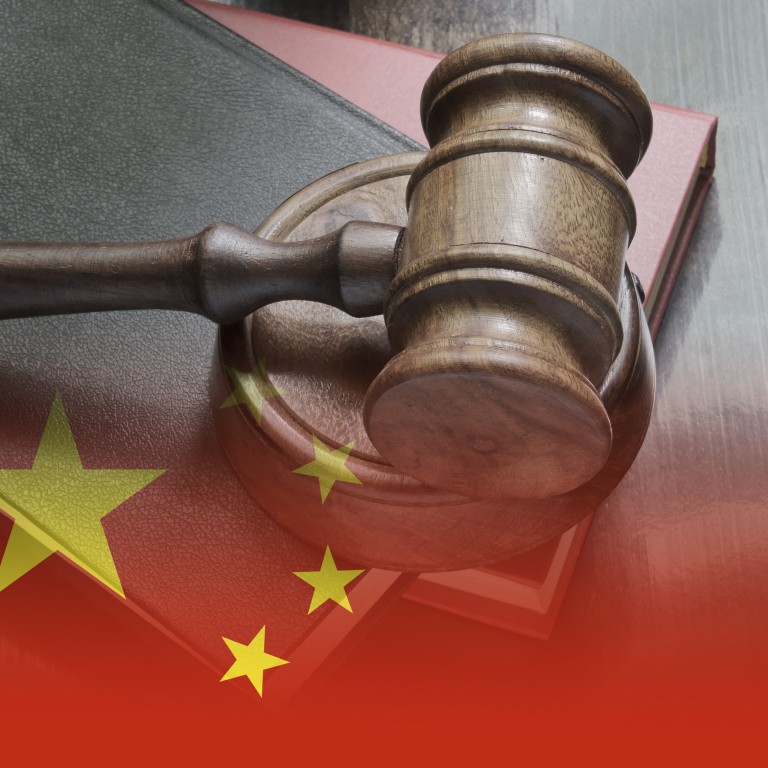
China’s courts use data analytics and blockchain evidence storage on the way to first AI-integrated legal system
- Under the 14th five-year plan, Chinese courts will upgrade to the fourth generation of smart court by 2025
- Changes may appear to create a fairer system but they are also a step towards more centralised political power, say academics in the US
China is rolling out changes to monitor judges, streamline court procedures and boost judicial credibility that could result in the world’s first AI-integrated legal system.
The changes are part of China’s “smart court” initiative, a signature policy of SPC president Zhou Qiang, to strengthen centralised political power and tighten the oversight of judges, according to legal experts.
Smart court is a vague concept referring to a range of low to hi-tech measures, including making the filing of paperwork more efficient for court users and releasing court opinions online to more technologically advanced efforts such as algorithm analytics and AI-assisted decision-making in courtrooms by partnering with technology companies.
According to the SPC report, Chinese courts across the country have published more than 120 million court decisions to a database online since 2014 and more than 11 million trials have been broadcast online.
Along with improved transparency, courts in different parts of the country are also testing pilot projects under the smart court initiative, including admitting evidence electronically.
Key takeaways from China’s annual government work report
Between February and December last year, more than 7 million cases were filed online and more than 4 million cases were mediated online. Meanwhile, there were nearly 900,000 trials heard virtually in the same period, representing a huge seven-fold increase from the year before.
From 2016 to 2020 during China’s 13th five-year plan, Chinese courts compiled 220 million case details to its big data-management and service platform and generated 870 special reports using big data analysis, according to the SPC report.
It also states that more than 640 million pieces of data were uploaded to its national judicial blockchain platform to store court evidence in the same period, and nearly 2.5 million of them have been certified.
“In the past, the documentation of evidence in cases like copyright violation would require the use of the notary public because such evidence can be easily erased if it is not properly documented,” Jin said. “This works fine but is very expensive.
“Now blockchain can take over the functions of a notary public in locking down or documenting evidence,” he added.
Jin said smart court also played an important role in keeping the judiciary open, even during the Covid-19 pandemic.
“Online courtrooms allowed trials to carry on through the internet where the plaintiff could stay home during the Covid-19 pandemic,” the professor said.
Under the 14th five-year plan, Chinese courts will upgrade to the fourth generation of smart court by 2025, including a centralised database platform for all judicial data as well as a centralised control hub overseeing all aspects of the smart court initiative across the nation.
Xi says China has a legal problem: finding lawyers to defend its interests
“Making sure that judicial decisions are consistent across the vast breadth of China is most often framed inside China as a way to make the legal system fairer, or to boost public trust that courts serve as impartial adjudicators,” Stern wrote.
Moreover, a uniform application of national laws also serves as a significant step toward centralised political power, a hallmark of Xi’s administration, while the embrace of data analytics and AI would also help position mainland courts as global players, according to the article.
Additional reporting by Guo Rui

